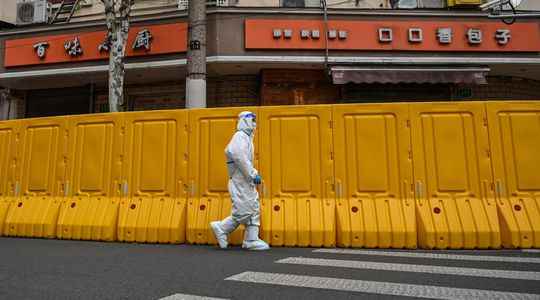“I have never had so many requests from clients who want to leave China permanently, exclaims Tao, a travel agent in Shanghai. 90% of them cannot succeed.”
Since March 2020, only 2% of international flights with China have been operated, but this is already too much for the government, for whom each arrival in the country runs the risk of a new epidemic wave. Since last month, it is almost impossible to obtain a travel authorization to leave China.
Blocked at home due to repeated confinements linked to the Covid, the Chinese only dream of distant horizons. “I have lost all my illusions, explains to L’Express, via encrypted messaging, a young Shanghainese. I studied in the United States, I work in finance, I have a very good salary. I thought I could take full advantage of my success, but I find myself brutally locked up at home since the end of March, unable to go out, fear in my stomach, sometimes lacking food. I am ready to give up everything to get as far away as possible from this hell. ” On the social networks WeChat and Weibo, searches including the word “flee” increased by 440% in one year, with a peak of 72 million searches for the day of April 15 alone, according to the analysis of the Nikkei group.
Never seen
“The first wave of requests dates from 2018, when Xi Jinping had the ten-year limit on the presidential term abolished, underlines Tao. The requests increased again at the time of the first confinement of Wuhan in February and March 2020, but there, they’re literally exploding. It’s unheard of. With the new restrictions imposed last May, people seem really desperate.”
Until 2020, nearly 150,000 Chinese left each year to settle in another country. To this were added some 700,000 students. But the Covid has changed the situation. In 2021, the National Immigration Administration recorded only 74 million international entries and exits, 79% less than before the epidemic. During the first half of 2021, China issued only 335,000 passports, barely 2% of the volume recorded during the first six months of 2019. “Only students admitted to a foreign university or those who have found a job in outside of China can obtain an authorization, explains by telephone an employee of the Bureau of entries and exits of Beijing, the equivalent of a prefecture. Pleasure trips and family reunions are not accepted. Some cities have even gone so far as to confiscate the passports of their inhabitants who might be tempted to take to their heels.
Passport expired
“I haven’t seen my daughter for two years, laments a Beijing retiree. With the situation in the country, the repeated confinements, we want with my husband to leave to join her in Boston, but my passport has expired and the prefecture refused to issue me a new one. It’s like living in prison, it’s unbearable.”
For the Chinese, the ability to travel abroad is a freedom only granted to them in the 1990s, when former leader Deng Xiaoping’s economic reforms spurred the country to open up to the outside world. Even today, only one Chinese in ten holds a passport. Four years ago, the preferred destination for candidates to leave was the United States, but “since the tensions between Beijing and Washington and the fear of being stigmatized, the Chinese are looking more towards Canada, Australia and, more recently, Singapore, Japan and Thailand, which reopens its borders on July 1,” Tao continued.
Except that with the pandemic, the Middle Kingdom was brutally closed: “No one goes in or out, rages our young Shanghainese. All my foreign friends want to leave. Unlike them, who can leave this prison, we can’t say anything. It doesn’t matter whether you are rich or poor, whether you live in Shanghai or in the countryside, no one in China escapes the authority of the state.” Online discussion forums devoted to emigration are now censored.
